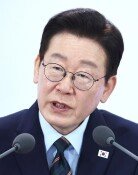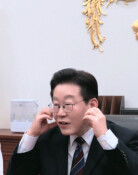[Editorial] Korea-U.S. Should Speak Openly and Put an End to Discussion
[Editorial] Korea-U.S. Should Speak Openly and Put an End to Discussion
Posted November. 17, 2003 23:01,
South Korea and the United States held an annual Security Consultative Meeting (SCM) and focused on dealing with major issues such as the troop dispatch to Iraq and the relocation of U.S. Forces Koreas Yongsan Garrison, which ended up in vain in making an ultimate consensus. The defense ministers of the two nations have repeatedly expressed their confidence on the alliance between South Korea and the U.S., however, they failed to reach an outcome suitable for the 50th anniversary of South Korea-U.S. alliance.
As for the movement of the U.S. army base in Yongsan, the discussion has only reached a plan for continued talks in the future, since there were some different views between the United Nation Command and ROK-U.S. Combined Forces Command (CFC). A negotiation on troop dispatch to Iraq was also far from satisfied and left room for further discussions, since the U.S. side kept maintaining its principle by saying, Details of troop dispatch is up to each nation, in return for South Koreas suggestion of sending 3,000 troops mainly for rehabilitation support. It is however good news that the U.S. Secretary of Defense Donald Rumsfeld expressed his appreciation to the Seoul government for the pledge of additional troop dispatch and financial support for rehabilitation in Iraq , which made the gap between two nations less severe.
As pointed out earlier in this column, the reasonable way is to take more time and continue to discuss if it is not easy to make an agreement due to divergence of opinions. This is because subjects such as troop dispatch to Iraq and relocation of U.S. Forces Korea are very critical enough to handle with a prudent mind. It is necessary for the negotiators to take a deliberate approach in order to create a perfect consensus through full discussions rather than precipitate to cover the gaps between two nations and conclude the talks in rush.
However, it is not good to give an impression that the topics of troop dispatch to Iraq and relocation of Yongsan Army base are linked to each other. In particular, the issue on relocating United Nations Command and ROK-U.S. Combined Forces Command was swelled out just before the Security Consultative Meeting. It is likely to become more and more complicated as the United States is connecting the army base relocation issue with the construction plan of U.S. Embassy building and residences for the Embassy staff.
By all means, through the current discussion, South Korea and the United States have clearly verified their counterparts stance. In the future, the two nations should make efforts to find a point of agreement rather than insisting on their own viewpoint. I am looking forward to an early conclusion between the two nations that would fit well with the 50-year alliances between the two countries.



![[단독]폴란드, 韓 해군 최초 잠수함 ‘장보고함’ 무상 양도 안받기로](https://dimg.donga.com/c/138/175/90/1/wps/NEWS/IMAGE/2026/02/27/133437397.1.jpg)
![‘노인 냄새’ 씻으면 없어질까?…“목욕보다 식단이 더 중요”[노화설계]](https://dimg.donga.com/c/138/175/90/1/wps/NEWS/IMAGE/2026/02/27/133434557.3.jpg)


